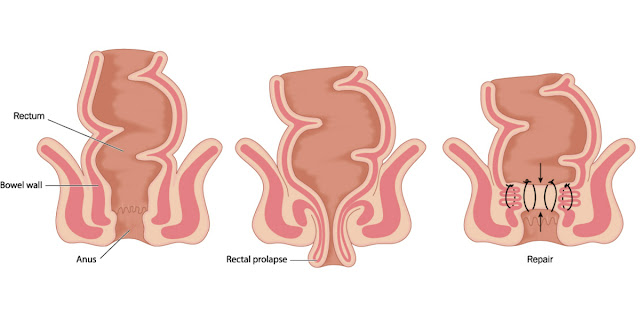How Can You Tell the Difference Between Hemorrhoids and Rectal Prolapse?
How Can You Tell the Difference Between Hemorrhoids and Rectal Prolapse?
Many
adults complain about discomfort around their anus and something coming out of
it. Most of these people are diagnosed with hemorrhoids, which is the most
common cause. Although rare, people can develop a condition called rectal
prolapse, whose symptoms are similar to hemorrhoids.
Patients
complain about anal pain, itching around that area, and bloody stool with both
these conditions. With similar symptoms, it can be hard to differentiate the
two. In order to receive proper treatment, you need to understand the cause of
your condition.
Hemorrhoids
Hemorrhoids
develop when the veins beneath the mucous membrane at the lowest part of your
anus become swollen and clustered. Several Hemorrhoid medications can help with
this condition. Hemorrhoids develop in two forms Internal hemorrhoid and
external hemorrhoid. Internal hemorrhoid occurs when the small veins in the
walls of the anal grow large. External hemorrhoid occurs when veins beneath the
skin of the rectum start clotting.
Rectal Prolapse
Rectal
prolapse occurs when the rectum walls slide out of their normal position due to
the loosening of their usual attachments inside the body. The symptoms of
Rectal Prolapse include constipation, itching, mucous discharge in stool, and
bleeding in the rectum. Most doctors prescribe Xyloproct ointment for the itchy
feeling.
Difference
Hemorrhoids
and Rectal prolapse cause similar symptoms as in both of the cases, the rectum
tissues begin to protrude out of the anus. However, in Rectal prolapse, the
rectal wall protrudes through the anus, which can happen during bowel movements
and is common among individuals with weak pelvic muscles.
The
symptoms that differ between the two are that in Rectal prolapse, there is
often leakage of stool and the bowels feel full all the time. Moreover, the
prolapsed tissue takes the form of concentric circles.
Key Takeaway
Both
Hemorrhoids and Rectal Prolapse leave an uncomfortable feeling in patients,
affecting the quality of life. To treat these conditions, it is essential to
understand the root cause of symptoms which can help with the treatment.
Several medications can help with the specific symptoms in both conditions.
Xyloproct Online UK can help with the itch, and Proctosedyl Ointment Online UK
can help with the pain around the anus.




Comments
Post a Comment